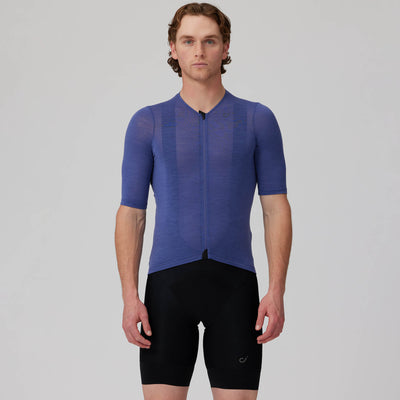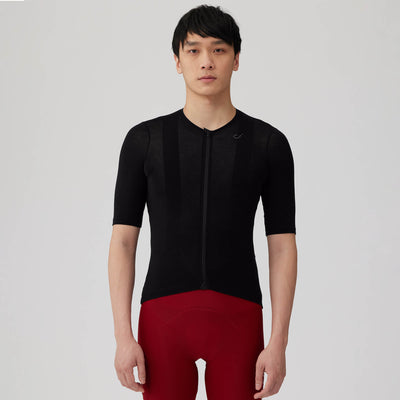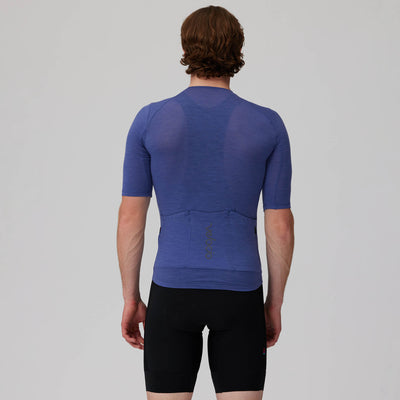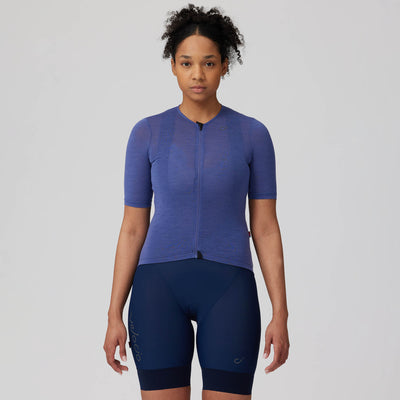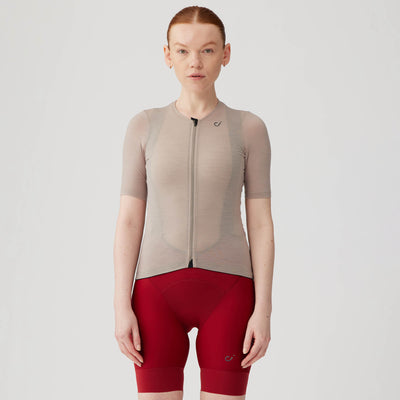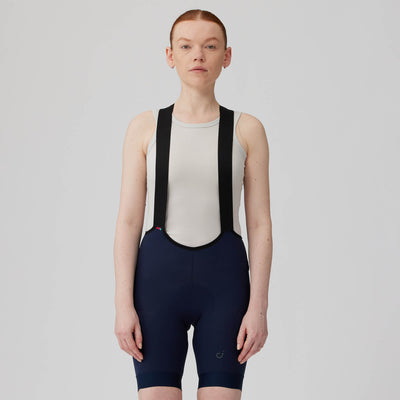Finding A Home
Marion Dziwnik isn't a stranger to ultracycling. She won Badlands in 2021 and the Traka360 in 2022, along with a second place finish at the Transbalkan Race in 2023. She recently rode 715km island hopping through the Canary Islands (of which some of the below photos are from). And she makes a habit of competing at the hardest and longest races around the world.
It wasn't until the recent Atlas Mountain Race though, that she actually felt like she belonged. Read her account, in her own words, below.
Photos by Nils Laengner and Luisa Werner.
Whatever the event, however long the ride, there's one constant among Marion's riding — The CONCEPT Merino Jersey.
If there's one thing I've learned about Ultracycling over the past few years, it's that fulfillment isn't born of reaching the finish line; it's born of the journey taken to get there.
After Ultracycling races, despite often surpassing my own expectations and goals, I've found myself feeling empty and exhausted. Initially, this puzzled me, leading me to question whether ultracycling was the right sport for me. This happened even while I would be experiencing overwhelming emotions while riding, making this contrast even more perplexing.
Yet, over time, I've learned to cherish the entire process, from the meticulous preparation and exploration of my motivation to setting meaningful goals, overcoming challenges during the race itself, and experiencing overwhelming emotions when things fall into place.
The Atlas Mountain Race marked a significant milestone for me. It was the first race where I truly felt at home in the discipline of ultracycling, and I cherished every moment of it. From the countless hours of indoor training, to bikepacking through the Canary Islands - which served as a crucial part of my preparation - and finally, to every peak and valley encountered during the race, I approached each challenge with a sense of familiarity and confidence, knowing exactly what to expect and how to navigate it.
Ultracycling has become more than just a sport for me — it's a journey of self-discovery, resilience, and profound emotion. It's a journey that I've come to love and embrace wholeheartedly.



Why the Atlas Mountain Race?
The Atlas Mountain Race has always held a special place in my thoughts, calling out to me with the allure of adventure from its very beginnings in 2020. During that time, I was just beginning my journey in the world of ultracycling, with limited experience and poor equipment. However, the idea of exploring the enchanting landscapes of Morocco, coupled with the thrill of embarking on such a grand adventure, fascinated me beyond measure. I was so captivated that I had even reached out to the race organizer, Nelson Trees, negotiating the possibility of joining after the official registration. Yet, hesitations crept in, fueled by the lack of a suitable bike and a profound respect for undertaking my first solo ultra-race in a culture so unfamiliar.
Fast forward four years, and a tapestry of experiences now weaves the narrative of my Ultracycling journey. Armed with the right bike for the job and having conversed with numerous women who conquered the race, I found the confidence I needed to finally face this challenge. Excuses were no longer in my arsenal and the time had come to confront the Atlas Mountain Race head-on. This race, among countless others, became not just a goal but a compelling and unavoidable destiny.
From Chill to ThrillMy Surprisingly Positive Off-season Fitness Journey
I'll admit, the idea of staying active during winter didn't initially appeal to me. Winter has traditionally been my time to step back from cycling, allowing myself a mental and physical break. Instead, I engage in other sports like winter sports, climbing, and activities I tend to forgo during the summer months.
However, I decided to challenge myself by creating a 10-week training plan and kicking off indoor training sessions in early November. By mid-December, I found myself in the Canary Islands for a bikepacking trip with my ultracycling friend, Luisa, embarking on longer rides amidst the winter season.
Contrary to my expectations, I found joy in every aspect of my winter training. With the upcoming race in mind, I was fully motivated to stick to my training plan. The bikepacking trip, nestled in the heart of winter, proved to be a deeply fulfilling experience. The conditions were ideal and I cherished every moment spent with Luisa. We leisurely followed the Gran Guanche Trail Route, taking numerous breaks and ensuring we got proper rest each night. I savored those breaks and especially the nights, fully aware that the conditions in Morocco would be vastly different. There, I'd be riding through most nights, focusing on efficiency during breaks.
The Race
The race was scheduled to start on the evening of February 9, 2024. I was cutting it close since my bike decided to take an unexpected detour to Madrid during my layover en route to Marrakech. I was caught up in last-minute preparations until Friday morning. Then, to add to the excitement, a massive rainstorm, the likes of which Marrakesh hadn't seen in years, was forecasted. I wasn't prepared for such torrential rain. Jokingly, I thought maybe I should have packed rain pants instead of considering a bikini as my go-to rain gear!
This unforeseen heavy rainfall led to the postponement of the race, pushing the start time to Saturday evening at 6 pm, a full 24 hours later than originally planned. While the Moroccan authorities hadn't given the green light at that time, Nelson Trees took the bold step of letting us proceed, essentially under a "voluntary" agreement and at our own risk. From that point on, the race proceeded as planned, except for the absence of the usual escort out of Marrakesh by the Moroccan police.
I initially rode with the lead group for about an hour, soaking in the adrenaline-fueled atmosphere. However, it didn't take long for me to realize that their pace wasn't quite my cup of tea for the long haul, so I decided to let them pull ahead and find my own rhythm. The first night was a bit of a mess, with detours here and there due to rain damage. Essentially, we omitted the first longer hike-a-bike section on the course and instead took a 30 km detour around it on the road.
After covering 157 km, it was around 4 am when I finally arrived at the first checkpoint in Telouet. While many riders likely pushed forward, I made the conscious choice to prioritize rest. Knowing that enduring a sleepless night would take its toll, I opted to catch some shut-eye for a mere two hours. Surprisingly, by 7 am, I felt somewhat refreshed and ready to hit the road again. This decision proved pivotal, offering me the chance to seamlessly ease into the race and find my rhythm.
As the sun made its grand appearance at 8 am, I finally had the chance to take in the breathtaking scenery around me. The majestic Atlas Mountains, the endless expanse of deserts, and the allure of premium gravel routes captivated my senses. Fueled by this visual feast, the first day zipped by without any major hiccups. I enjoyed delightful conversations along the way and settled comfortably into my riding rhythm.
The only disappointment encountered was in the resupplies, as the availability of food did not meet my expectations outlined in the race manual. What I had imagined as fully stocked supermarkets turned out to be small roadside kiosks offering a meager selection of drinks and cookies. Despite my disappointment, I had to adapt to the circumstances.
Before heading into the night and the longer off-road section between Imassine and Afra without resupply, I wanted to replenish. In Imassine, there was a highway restaurant & shop mentioned in the race manual. Finally, something substantial, I hoped, envisioning a big rest stop like those on German highways. However, upon arrival, I was disappointed again. The highway restaurant offered only two dishes, Tajine (with meat) and omelets. So, as a vegetarian, my options were quite limited — I ended up having an omelet with a side of omelet.
Little did I know that my diet for the upcoming days would be an unintentional 'Omelet Fest' with a side of yogurt drinks and cookies, making up 90% of my calorie intake. Although I had heard from other riders that omelets would be a common feature along the route, I was completely unprepared for the lack of alternatives. As someone who's mostly vegan at home, this turned into an egg-streme part of my adventure. But with options as scarce as a desert oasis, I had to egg-cept my fate and hope my stomach was up for the egg-citing challenge.
By the time I reached Imassine, I was fully immersed in the race and had found my rhythm, cycling for 18-20 hours and then taking a 3-4 hour break for sleep or rest. The first half of the race felt surprisingly easy, and I initially planned to push myself harder towards the end. However, due to a series of minor complications — a crash, a night of poor sleep, neck issues, and the sheer length of the race — coupled with the confidence that I was on track to achieve all my race goals, I reconsidered and decided to maintain a steady pace, allowing the race to end as smoothly as it began.



For this race report, I have decided to skip the granular details and instead share two stories from the race that I frequently recount when asked about my experiences with the people of Morocco.
One such story unfolded on the evening of the fourth day. Lost in the dark, I ended up in a farmer's field, far from my intended path. Realizing my mistake, I stopped to check my bike computer for directions. Just then, the farmer came out and approached me. I braced myself for a telling-off, but instead, he pointed towards the main road, indicating that I should head that way. That was kind of him, but my route was supposed to take me off the main road and onto trails, as clearly shown on my Wahoo. Language barriers prevented me from explaining this to him, so I thanked him and rode a bit away from his property to find my bearings without further interruptions. However, still within sight of his house and completely clueless, I couldn't find the right path. Then, with unwavering determination, the farmer returned on his well-worn bike, insisting on guiding me. Reluctantly, I followed, and to my surprise, he led me precisely to where my trail resumed. He didn't just offer help, he became a shepherd to this lost cyclist in that moment, ensuring I found my way.
His enthusiastic assistance and the connection we shared, despite the language barrier, was a genuinely heartwarming and unforgettable part of my Atlas Mountain Race experience.
The second story unfolded on the evening of the fourth day. I rolled into Ait Baha around 11 pm and, to my surprise, found a restaurant that was still open. Through a mix of charades and sheer determination, I explained that I'm a vegetarian and not exactly thrilled at the prospect of my hundredth omelette. They got the message and could probably see the hunger in my eyes. What followed was a multi-course vegetarian feast – vegetables, lentils, potatoes, soup, eggs, salad, olives, bread – way more than my shrunken stomach could handle. I ended up taking half of it with me and finished it off at the hotel where I slept. It was the best, most lavish meal of the entire race... and the whole feast, including drinks, cost me just 5€. A gourmet bargain! The warmth and generosity of this hospitality took me by surprise and truly overwhelmed me, making it one of the standout moments of the race.
I cannot stress enough how much I recommend this race to anyone keen on exploring the country in an athletic manner. It's not just about the breathtaking scenery or the welcoming community; it's also about feeling safe and respected, especially as a woman in a Muslim country. Before the race, I had some concerns, but the experience completely overturned them. I didn't encounter any uncomfortable situations or negative incidents as a woman during the race. Even though some moments with children were intimidating, they seemed to affect everyone, regardless of gender. Overall, the race was an incredibly positive experience for me, both physically and culturally.
Number and FAQ
Total km: 1356 km
Total elevation gain: 22000 m
Total time: 5 days 18 hours
Average km per day: 235,83 km
Average elevation gain per day: 3826 m
Average hours slept per day: 3 h
How much water did you carry with you? 1.5 liters on the bike, 2 liters in the backpack, plus extra capacity on the fork rack for 0.5 to 1.5 liters.
What were the biggest challenges of the race? 1. Finding food, 2. the long nights (12 hours of darkness!), 3. the large temperature differences (up to 30 degrees Celsius).
Pro tip for people planning to race next year: bring more of your own delicious food, especially salty snacks, and consider gaining a few extra kilos beforehand.











